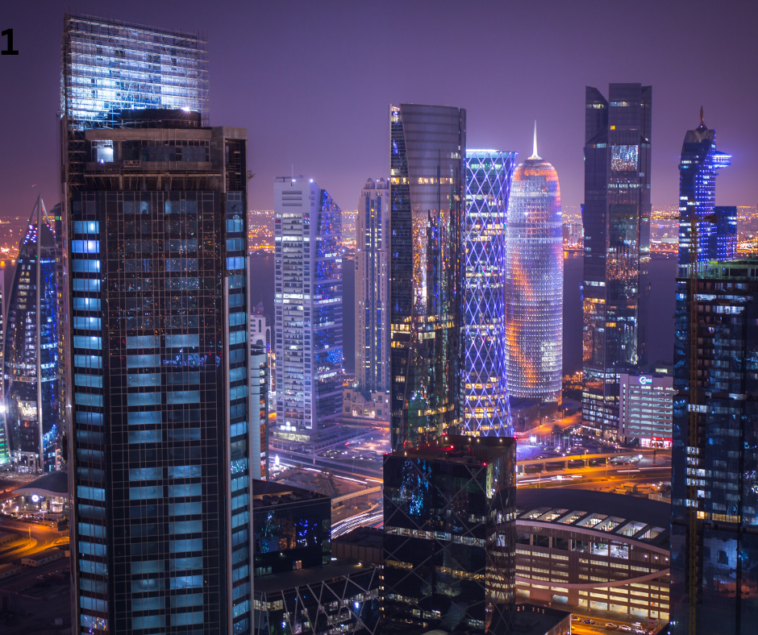Qatar, a dynamic nation nestled in the heart of the Middle East, harmonizes tradition and modernity in a distinct manner. This piece delves into the diverse facets of Qatari life, encompassing expat perspectives, geographical insights, economic dynamics, and the liberties cherished by its populace. Whether contemplating a relocation to Qatar or intrigued by its allure, embark on a journey with us to unravel the intricate tapestry of Qatar’s culture and way of life.
Table of Contents
- Life of Expats in Qatar
- Living in Qatar
- Geography of Qatar
- Doha
- Qatar: facts & figures
- Key Historical dates
- Economy & Living standards
- Qatari Economy
- People & Society
- Language & Religion
- Social Structure
- Lifestyle & Culture
- Food & Drink
- Politics, Government, & Administration
- Rights & Freedom
- Crime & Policing
- Health, Welfare, & Social Security
- Education
- Work & Business
- Environment & Climate
- Places to Visit
- Public Holidays in Qatar
Life of Expats in Qatar
Life for expats in Qatar can be both exciting and rewarding. The country has a significant expatriate population, with foreigners making up the majority of the workforce and contributing to the country’s growth and development. Here are some key aspects of expat life in Qatar:
- Employment Opportunities: Qatar offers numerous job opportunities across various sectors, particularly in industries such as oil and gas, construction, finance, healthcare, and education. Expats often find lucrative positions with competitive salaries and benefits.
- High Standard of Living: Qatar boasts a high standard of living, with modern infrastructure, world-class healthcare facilities, and a wide range of recreational activities. The country has invested heavily in developing state-of-the-art amenities, including shopping malls, restaurants, cultural centers, and sports facilities.
- Safety and Security: Qatar is known for its low crime rate, making it a safe and secure place to live. The government takes extensive measures to ensure the safety and well-being of residents and expats.
- Cultural Diversity: Expats in Qatar have the opportunity to experience a multicultural environment. The country’s population consists of people from various nationalities and backgrounds, creating a diverse and inclusive society. This diversity is reflected in the cuisine, cultural events, and social gatherings.
- Education and Healthcare: Qatar offers high-quality education and healthcare services. The country has a strong focus on education, with a number of international schools and universities that cater to expat families. Similarly, the healthcare system is modern and well-equipped, with both public and private hospitals providing excellent medical care.
- Entertainment and Recreation: Qatar offers a wide range of entertainment options for expats. From international sporting events, such as the FIFA World Cup, to cultural festivals and exhibitions, there is always something happening in Qatar. Expats can also enjoy outdoor activities like dune bashing, desert camping, and water sports.
- Expat Communities: Expats in Qatar often find a sense of community through various social and professional networks. There are several expat clubs and organizations that organize events and activities, allowing individuals to connect and build friendships with people from around the world.
- Respect for Islamic Values: Qatar is an Islamic country, and expats are expected to respect local customs and traditions. This includes dressing modestly in public, adhering to Islamic practices during Ramadan, and respecting local norms and customs.
- Family-Friendly Environment: Qatar is considered a family-friendly destination, with numerous parks, recreational facilities, and entertainment venues suitable for children. The government also places emphasis on providing family-oriented services and amenities.
- Expatriate Rights and Support: The Qatari government has implemented measures to protect the rights of expatriate workers, including regulations on working conditions, wages, and access to legal recourse. The Ministry of Administrative Development, Labour and Social Affairs oversees labor-related matters and provides support to expats in case of disputes or issues.
Living life as an expat in Qatar offers a unique opportunity to experience a different culture, enjoy a high standard of living, and contribute to the country’s development. While adapting to a new environment may present certain challenges, the rewards of living in Qatar are often worth the experience.
Living in Qatar
Living as an expatriate in Qatar brings forth a plethora of benefits, including a modern public transit system, well-kept roadways, and a seamlessly connected international airport. The array of housing options catering to various budgets and the presence of renowned international brands further enhance the comfort and convenience of residing in Qatar. Moreover, the absence of income tax offers expatriates the opportunity to save a substantial portion of their incomes.
While embracing these advantages, it is crucial to recognize that Qatari society upholds conservative values, with Islam playing a pivotal role in daily routines. Respecting and adhering to local customs and traditions are essential for expats to foster a harmonious coexistence within the community.
However, it is imperative to acknowledge that the expat experience in Qatar varies widely. While some revel in a luxurious lifestyle, others—especially migrant workers—may encounter challenges like exploitation and unjust treatment. Qatar has initiated reforms to ameliorate labor rights and conditions, yet there remains a need for ongoing efforts to ensure the welfare and equitable treatment of all migrant workers.
Collaboration between expatriates and the Qatari government is crucial to address any prevailing issues and cultivate an inclusive society that upholds the rights and dignity of every individual, irrespective of their origins or occupations. By fostering continued dialogue and action, Qatar can progress towards a more equitable and compassionate community for all residents.
Read More : LIVING IN QATAR
Geography of Qatar
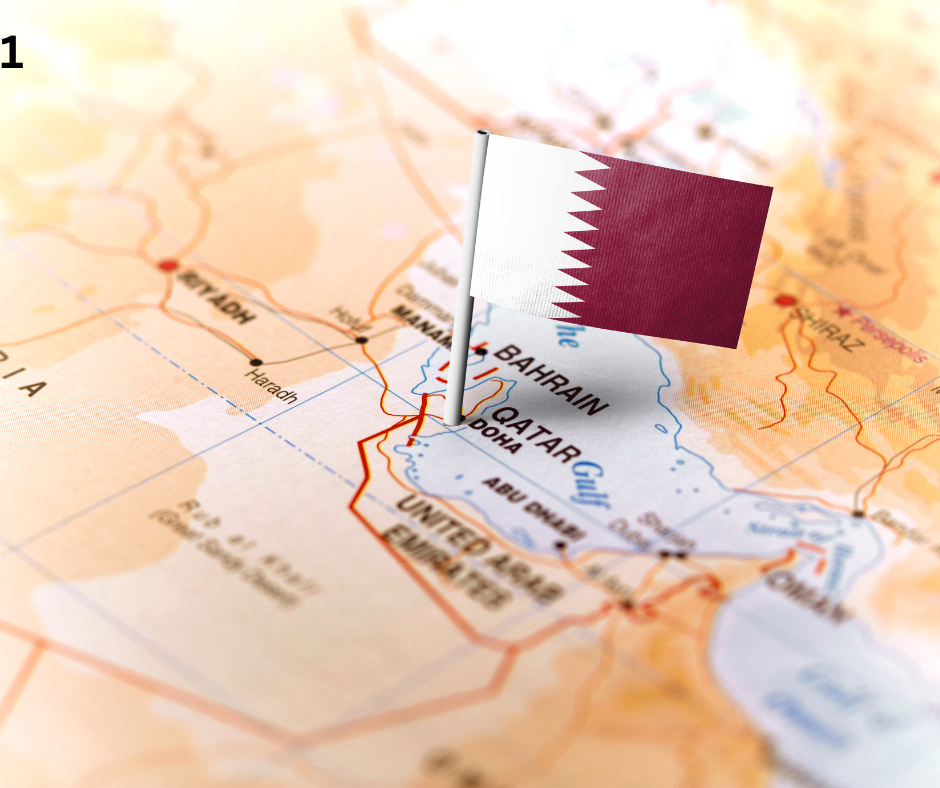
Qatar, situated as one of the smallest Arab states, encompasses an approximate land area of 11,437 square kilometers. Currently, its sole land border with Saudi Arabia remains closed, while the Arabian Gulf envelops the peninsula, providing Qatar with access to the sea.
Geographically, Qatar’s landscape is predominantly flat, characterized by a central limestone plateau and vast expanses of desert laden with loose sand and gravel. The country’s highest peak, Qurain Abu al Bawl, modestly rises to an elevation of 103 meters.
The administrative framework of Qatar is structured around eight municipalities: Al Shamal, Al Khor, Al Shahaniya, Umm Salal, Al Daayen, Ad Dawhah (Doha), Al Rayyan, and Al Wakrah. Each municipality bears the responsibility of managing and supervising specific regions within the nation.
Doha
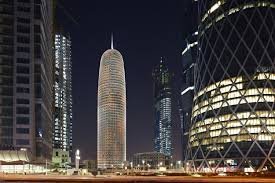
Doha defies being a one-horse town in the midst of Qatar’s singular city-state status. The emergence of opulent skyscrapers, luxury hotels, upscale dining venues, and a vibrant arts and cultural scene epitomize the city’s nouveau riche identity, all unfolding over the past 15 years. Doha, the sole metropolis of Qatar, serves as the primary hub where the majority of expatriates live and work.
After the triumphant hosting of the 2022 FIFA World Cup, Doha has witnessed subsequent developments. The infrastructure initially erected for the tournament, inclusive of stadiums, transport networks, and lodgings, continues to enrich the city and benefit its inhabitants.
Remaining a linchpin of Qatar’s economy, Doha attracts foreign investments and propels economic diversification forward. Various sectors like finance, technology, tourism, and education play pivotal roles in the city’s progress and expansion.
Doha’s cultural and entertainment landscape has flourished in recent times, boasting international art exhibitions, performances, and festivals that celebrate a fusion of local and global talent. Cultural institutions such as museums and galleries further elevate the artistic essence of the city.
Demonstrating a commitment to sustainability, Doha champions green initiatives and environmentally friendly practices. Endeavors to enhance green spaces, execute sustainable urban development plans, and invest in renewable energy projects are ongoing to reduce the city’s ecological impact.
Offering a superior quality of life, Doha caters to its residents with modern amenities, encompassing luxurious hotels, shopping centers, and international dining options. Both residents and expats relish recreational pursuits like outdoor sports, water-based activities, and cultural events.
Doha maintains a substantial expatriate community, contributing to its cosmopolitan ambiance. The city’s inclusive ethos welcomes individuals from diverse backgrounds and nationalities, providing avenues for expats to connect through social networks, clubs, and organizations that nurture a sense of community.
Despite the denouement of the FIFA World Cup, Doha remains a focal point for ongoing advancements. Infrastructure projects, urban planning initiatives, and architectural innovations persist as the city strives to fortify its stature as a modern metropolis.
A notable stride in Doha’s evolution is the inauguration and operation of the Doha Metro system. Commencing construction in 2013, the metro project has revolutionized public transportation within the city, markedly enhancing connectivity.
Comprising four lines—Red, Green, Gold, and Blue—the Doha Metro spans an extensive network of underground and elevated tracks, interlinking major residential, commercial, and tourist hubs in Doha and its environs. Equipped with multiple interchange stations, the metro facilitates seamless transfers between different lines.
The Doha Metro offers a convenient and efficient mode of transportation for both residents and visitors. Modern trains, air-conditioned and outfitted with cutting-edge amenities, traverse the network. Architectural designs at metro stations draw inspiration from Qatar’s cultural heritage, granting easy access to key destinations such as commercial districts, educational institutions, shopping precincts, and tourist attractions.
The introduction of the Doha Metro has alleviated traffic congestion and elevated the overall transportation experience in the city. Contributing to a sustainable and eco-friendly travel environment, the metro encourages public transportation usage over private vehicles.
Embraced warmly by residents, the metro has seamlessly integrated into Doha’s transportation infrastructure. It plays an instrumental role in augmenting the city’s mobility and accessibility, simplifying navigation and facilitating exploration of Doha’s diverse offerings.
Rea More | Places to visit within 1.5 hours from Doha
Qatar: facts & figures
- The expected total cost of the World Cup to Qatar is $220 billion in total.
- Females make up only about 27% of the population.
- Iran and Qatar share the world’s largest gas field. The offshore North Field has 35,000 cubic kilometers of recoverable reserves, which is about six times the size of Russia’s second-largest field.
- Qatar has the highest per capita income in the world, at $130,000.
- On May 8, 2019, the first of three lines of the multibillion-dollar Doha Metro opened to the public.
- Shortly after declaring independence from the British in 1971, the country became a component of the United Arab Emirates.
Key Historical dates
Qatar commemorates its National Day on December 18 annually, also recognized as Founder’s Day, marking the country’s union in 1878. This day holds immense importance for Qataris, offering a moment to contemplate their history, culture, and national identity.
On September 3, 1971, Qatar declared its independence from British rule, heralding a transformative era in the nation’s narrative, granting it autonomy to govern itself and shape its destiny.
Upon the abdication of his father, Amir Hamad bin Khalifa Al Thani, Amir Tamim bin Hamad Al Thani assumed leadership on June 25, 2013. As the current Amir, Tamim bin Hamad Al Thani has been instrumental in steering Qatar’s domestic and foreign policies.
These historical events and leadership transitions play a pivotal role in comprehending Qatar’s evolution as an independent state and its progress over time. National Day provides Qataris with a platform to celebrate their accomplishments, demonstrate patriotism, and exhibit the nation’s vibrant cultural tapestry.
Economy & Living standards

- Standard of Living: Qatar offers an enviable standard of living for expatriates. The country’s modern infrastructure, high-quality amenities, and cosmopolitan environment contribute to a comfortable lifestyle.
- Mercer Quality of Life Index: Doha, the capital of Qatar, has been ranked 110th on the Mercer quality of life index. This index assesses various factors such as political stability, healthcare, education, public services, and recreation. While Doha’s ranking may not be among the highest globally, it still offers a decent quality of life compared to many other cities.
- Cost of Living: The cost of living in Qatar can be comparable to that of Europe or the United States, depending on various factors. While housing and electricity prices may be relatively lower in Qatar, the cost of living can still be significant. It’s important to note that housing costs can vary depending on employer-provided accommodations or personal choices in housing options.
- Imported Food and Grocery Prices: Qatar relies heavily on imported food due to its limited agricultural production capacity. As a result, grocery prices in Qatar can be higher compared to countries with a robust local agricultural industry. Expats should be prepared for potentially higher grocery expenses, particularly for imported or specialty items.
It’s worth noting that the cost of living can vary depending on individual lifestyle choices, accommodation arrangements, and personal spending habits. It’s advisable for expatriates to consider their specific circumstances and conduct thorough research or seek local advice to have a better understanding of the cost of living in Qatar.
Read More | Cost of Living in Doha, Qatar [UPDATED]
Qatari Economy
Qatar possesses the world’s 54th largest economy, boasting a gross domestic output of $167 billion. The nation’s economic foundation heavily relies on oil and gas, with oil revenue constituting around 70% of government income. Despite facing challenges in 2020, Qatar is projected to rebound with a growth rate of 4.3% in the upcoming years.
Ranking 11th globally in terms of GDP per capita, Qatar provides financial benefits for its native population and expatriates engaged in sectors like oil, gas, and finance. However, this economic status also underscores disparities, as many migrant workers, particularly in industries such as construction, receive meager wages.
People & Society
Since the year 2000, Qatar’s population has surged approximately fivefold, largely due to a significant influx of male foreign construction laborers. Consequently, the gender ratio in the country is imbalanced, with twice as many men as women. Qatari nationals constitute merely 12% of the total population in Qatar.
Language & Religion

Islam is the predominant religion in Qatar, with about two-thirds of the population adhering to the faith. Hindus and Christians follow in numbers after Muslims. While Arabic serves as the official language, English is widely utilized in business transactions. Doha, Qatar’s capital, resonates with a myriad of languages spoken on its streets and in its shopping centers, reflecting the diverse composition of the population, which comprises over 100 nationalities.
Despite Qatar’s rapid modernization, its society maintains a traditional essence. Expatriates residing in Qatar are expected to respect and observe local customs, including dressing modestly and adhering to social norms. Above all, they are required to show reverence for the Islamic religion. It is essential to note that public criticism of Qatari political affairs and the royal family is strictly prohibited in the country.
Read More | Which languages are spoken in Qatar?
Social Structure
The ruling Al Thani dynasty wields substantial influence in shaping Qatar’s social and political spheres, with the country’s tribal structure still exerting a notable impact on societal norms, underpinned by strong familial and kinship bonds.
“Wasta,” denoting the use of connections or influence to accomplish tasks or gain advantages, has traditionally been prevalent in Qatari society, although recent endeavors have been made to address and mitigate its effects. Qatar has been focused on modernizing its governance and administrative frameworks to foster transparency, accountability, and merit-based systems.
Social advancement stands as a key tenet of Qatar’s National Vision 2030, delineating the nation’s long-term developmental aspirations spanning diverse sectors. This vision underscores community empowerment, sports promotion, cultural heritage preservation, and family unity enhancement. Qatar has been actively implementing social schemes and projects to realize these goals.
The United Nations Human Development Index (HDI) serves as a metric of a country’s comprehensive development, factoring in elements such as education, healthcare, and income. Qatar has made notable strides in human development, currently securing the 45th spot on the HDI rankings, indicative of its advanced developmental status relative to many other nations.
Qatar’s social fabric and developmental initiatives are in a state of continual evolution. Ongoing programs and reforms are geared towards fostering social cohesion, upholding inclusivity, and enriching the overall welfare of Qatar’s populace.
Lifestyle & Culture

Ex-pats can choose from a variety of high-end accommodations. Some choose to live at The Pearl Qatar, a premier residential and leisure destination located north of the city.
Qatar is a desert country, but it is not devoid of culture. Doha’s pièce de résistance is the Museum of Islamic Art. The Museum, which is located right on the city’s coastline and was designed by Chinese architect I. M. Pei, is spectacular. Throughout the year, Katara Cultural Village, just north of Doha, features art exhibitions, films, operas, orchestras, and festivals. The UNESCO World Heritage Site Al Zubarah fort and archaeological site are located in the peninsula’s northwest corner.
Read More | Find Out Qatar Rich Culture and Legacy
Food & Drink

Doha has it all: swanky brunches, Michelin-starred restaurants, and glitzy cocktail lounges (if you have deep pockets). On the other hand, traditional Qatari cuisine does not have to be expensive. Machboos (similar to biryani) is a Gulf staple made with rice, meat or fish, and vegetables. Shawarmas are a popular dish, and the city is home to hundreds of inexpensive Indian restaurants.
Read More | Top 5 Delicious Drinks in Qatar
Politics, Government, & Administration
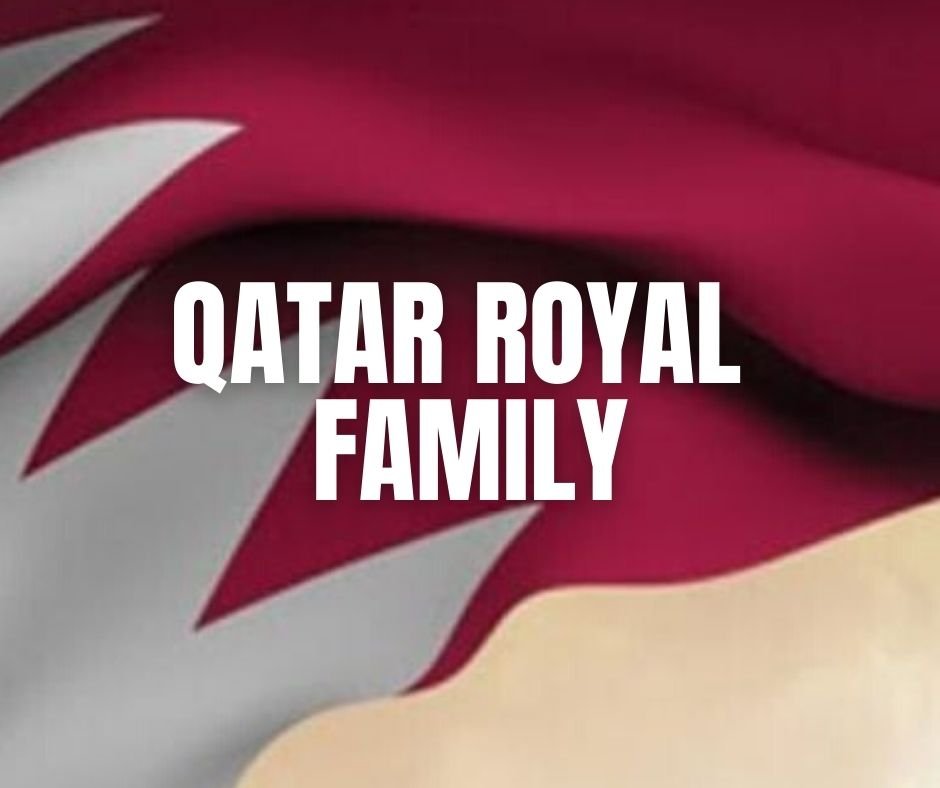
Qatar is a constitutional monarchy led by Amir Shaikh Tamim bin Hamad Al Thani, who also serves as the country’s prime minister. Following his father’s resignation, Shaikh Tamim gained control on June 25, 2013. Every citizen has the right to make personal pleas to the Amir, and the country is ruled by consultation and consensus. Political parties are prohibited, and instead, the Shura Council, a consultative body with 35 members, is formed.
Qatar’s foreign policy frequently deviates from regional trends, prompting some critics to label it a maverick. On the geopolitical stage, the country also punches above its weight — often at the expense of relations with its neighbors.
Read More | Websites and E-Services offered by Qatar Government
Rights & Freedom
Qatar has the 128th freest press in the world. Qatar receives 25 out of 100 scores in the Freedom in the World 2021 assessment, with 100 being the freest.
In Qatar, homosexuality is illegal and punishable by up to seven years in prison and a fine. Same-sex marriage and civil unions are not recognized by the government.
Read More | Qatar’s New Driving License Rules ( 2022 )
Crime & Policing
Qatar is one of the safest countries in the world, according to statistics. Serious crime is uncommon, and as an expat, you are unlikely to be a victim of one. The major crime rate has dropped considerably in recent years, according to the country’s interior ministry.
Read More | Do you know about Qatari Law system?
Health, Welfare, & Social Security
Qatar’s social welfare system is closed to ex-pats. Doha boasts outstanding hospitals, medical facilities, and healthcare. For treatment, most foreigners go to a private hospital or clinic. Expats must have private health insurance, which is usually provided by their employment. Expats are either covered by their employer’s health insurance or must purchase private insurance.
Read More | Lekhwiya Qatar: How it secures the nation and its people
Education
In Qatar, access to public education is typically reserved for Qatari citizens, while expatriate children have the opportunity to enroll in international schools that align with their national or international educational systems. These international schools accommodate students from elementary to secondary levels, offering a diverse array of educational programs.
Some prominent international schools in Doha, the capital of Qatar, include:
- Doha British School: Following the British curriculum, this institution provides education spanning from pre-school to secondary levels.
- Doha German School: Tailored for German-speaking students, this school delivers education rooted in the German curriculum.
- Institut Français Qatar: Adhering to the French curriculum, this school caters to French-speaking students seeking education.
Additionally:
- Al Khor International School: Situated in Al Khor, a city north of Doha, this international school offers a comprehensive international curriculum to students from diverse national backgrounds.
Read More : Indian Schools in Qatar
Work & Business
Expatriates often choose to relocate to Qatar primarily for employment prospects rather than solely for the lifestyle it offers. Qatar stands out for providing competitive salaries for skilled and qualified positions, with a key advantage being the absence of income tax on individuals’ earnings.
The Qatari economy faces influences such as oil price fluctuations and regional geopolitical dynamics. Despite these challenges, Qatar has maintained a relatively stable economy, continuing to present favorable work opportunities across diverse sectors.
Regarding the unemployment rate, it’s crucial to recognize that such statistics can fluctuate. The previously mentioned rate of 3.45 percent may have been accurate at a specific juncture. For the most up-to-date and precise information on Qatar’s current unemployment rate, it’s recommended to consult official sources like government reports or statistical agencies.
Qatar’s pursuit of economic diversification is integral to its National Vision 2030, aimed at reducing reliance on oil and gas and fostering sustainable growth in sectors like finance, technology, education, and tourism. These diversification efforts play a pivotal role in creating additional job prospects and nurturing a dynamic business landscape in the country.
Read More | Qatar’s Minimum Wage in 2022
Environment & Climate
In Qatar, contrary to common perceptions about its climate, the country does experience distinct seasons, primarily categorized into summer and winter.
Summer Season:
The summer months in Qatar typically extend from May to September, characterized by exceedingly high temperatures. Daytime highs can soar up to 50 degrees Celsius (122 degrees Fahrenheit), especially in July and August, the peak summer months. Elevated humidity levels during summer exacerbate the heat, intensifying the sensation of warmth. Given the extreme temperatures, outdoor pursuits are often curtailed, necessitating precautions like adequate hydration when outdoors.
Winter Season:
Qatar’s winters are generally mild and enjoyable, spanning from November to April. During this period, daytime temperatures range from 20 to 25 degrees Celsius (68 to 77 degrees Fahrenheit). Winter skies are typically clear, with abundant sunshine, creating optimal conditions for outdoor activities. While rainfall is infrequent in Qatar, if it does occur, it is more likely during the winter season.
Read More | List of Insurance Companies available in Doha,Qatar
Qatar is working to maintain its ecology, despite being a desert land prone to human growth. The environment is one of the developmental pillars of National Vision 2030.
Places to Visit
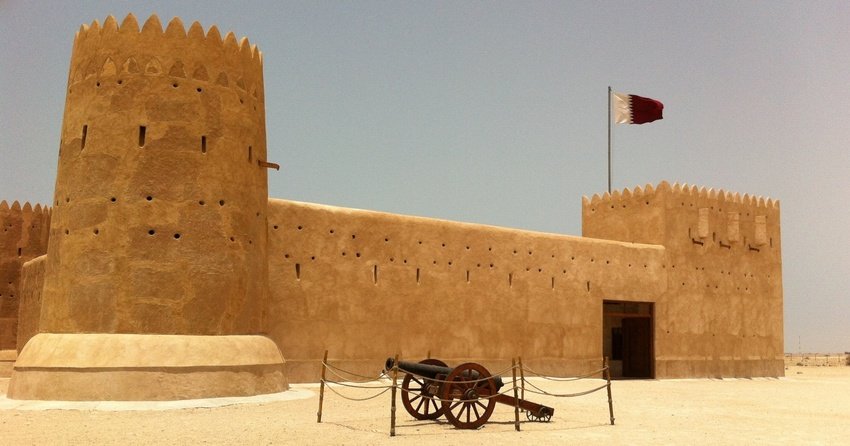
- Museum of Islamic Art
- Singing Sand Dunes
- Souq Waqif
- Al Zubarah
- Imam Abdul Wahhab Mosque
- National Symbols of Qatar
- Colourful roads in Qatar
- Marroub Fort
- Al-Thughb Fort
- Al-Rakiyat Fort
Public Holidays in Qatar
In Qatar, public holidays are an important part of the country’s cultural and religious calendar. Here are some of the major public holidays observed in Qatar:
- National Day (December 18): Celebrates Qatar’s unification and independence.
- Eid al-Fitr: Marks the end of Ramadan, the Islamic holy month of fasting. The dates of this holiday vary each year based on the lunar calendar.
- Eid al-Adha: Also known as the Festival of Sacrifice, it commemorates the willingness of Ibrahim (Abraham) to sacrifice his son as an act of obedience to God. The dates of this holiday also vary each year based on the lunar calendar.
- Qatar Sports Day (second Tuesday in February): A day dedicated to promoting sports and physical activities in the country.
- Islamic New Year: Marks the beginning of the Islamic lunar calendar year. The date of this holiday also varies each year.
- Prophet Muhammad’s Birthday: Celebrates the birth of the Islamic prophet Muhammad. The date of this holiday also varies each year.
Related Articles you may like
- From A to Z experiences in Qatar
- The most beautiful beaches in Qatar
- List of Public Transportations Options in Qatar
- The Best Night Life and Night Clubs to Enjoy in Doha Qatar
- Most Visited Parks in Qatar
- Do you know the cities of Qatar
- Top 19 Shopping Malls to visit in Qatar
- Top 12 activities you must try in Qatar
- Rulers of Qatar and Their Achievements
- Top Tourist hotspots in Qatar
- 17 Interesting Facts You Need to Know About Qatar
Please Subscribe Us to get updated with Qatar News, Saudi News, Kuwait News, Health News, UAE News, Iqama, Visa, Jobs, Banking and More.

